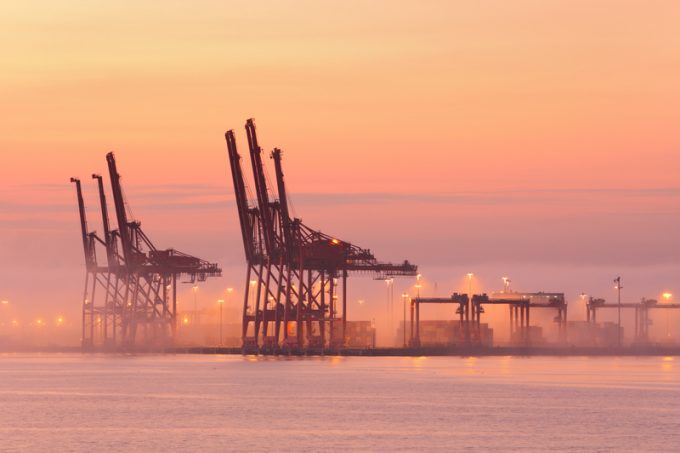Rates update, week 51: GRIs boost prices, with more to come in January
Container spot rates on the transpacific trades shot up this week, on the back of ...
FDX: ABOUT USPS PRIVATISATIONFDX: CCO VIEWFDX: LOWER GUIDANCE FDX: DISRUPTING AIR FREIGHTFDX: FOCUS ON KEY VERTICALFDX: LTL OUTLOOKGXO: NEW LOW LINE: NEW LOW FDX: INDUSTRIAL WOESFDX: HEALTH CHECKFDX: TRADING UPDATEWMT: GREEN WOESFDX: FREIGHT BREAK-UPFDX: WAITING FOR THE SPINHON: BREAK-UP ALLUREDSV: BREACHING SUPPORTVW: BOLT-ON DEALAMZN: TOP PICK
FDX: ABOUT USPS PRIVATISATIONFDX: CCO VIEWFDX: LOWER GUIDANCE FDX: DISRUPTING AIR FREIGHTFDX: FOCUS ON KEY VERTICALFDX: LTL OUTLOOKGXO: NEW LOW LINE: NEW LOW FDX: INDUSTRIAL WOESFDX: HEALTH CHECKFDX: TRADING UPDATEWMT: GREEN WOESFDX: FREIGHT BREAK-UPFDX: WAITING FOR THE SPINHON: BREAK-UP ALLUREDSV: BREACHING SUPPORTVW: BOLT-ON DEALAMZN: TOP PICK

Ocean carriers are closely watching developments in the 10-day Canadian west coast port strike before finalising network changes, although some service alterations have begun.
Although talks between the employers, British Columbia Maritime Employers Association (BCMEA), and the ILWU were reported to have resumed at the weekend, under the auspices of federal mediators, the two sides look as far apart as ever from agreeing a new labour contract.
According to this morning’s eeSea data, four container vessels bound for Vancouver have changed their proforma port rotations to call at Seattle first, before returning to Vancouver later: the OOCL San Francisco; CMA CGM Medea; Yantian and Hyundai Faith.
Additionally there are two confirmed omissions of Canadian ports by vessels that will now call only at the US west coast: the MSC Sara Elena; and Ever Safety.
And the data shows eight vessels waiting at anchor off Vancouver, with eight more sailing toward the port, and at Prince Rupert, five vessels are waiting off the port.
Destine Ozuygur, head of operations at eeSea, told The Loadstar she would not be surprised to see more vessels added to the list of omissions and diversions by the end of the day.
“I have the distinct feeling almost everyone is still holding their breath,” she said.
Some 7,500 members of the Canadian branch of the International Longshore and Warehouse Union (ILWU) stopped work on 1 July and, at a well-supported rally held at the port of Vancouver yesterday, there was little sign of compromise. The show of support at Canada’s largest container gateway included a rousing call from ILWU president Rob Ashton.
Talks between the BCMEA and ILWU negotiators broke down last Tuesday, the employers saying the union’s demands “had left no further avenues to reach a deal”. In turn, the ILWU accused the BCMEA of refusing to negotiate and of attempting to “vilify the union and scare the public with tales of economic disaster”.
The BCMEA said that it had submitted a revised proposal on the contentious issue of the ILWU’s demand to expand its jurisdiction over terminal maintenance work, but apparently this has been rejected by the ILWU negotiators.
Pressure is growing in support of an immediate recall of Canada’s parliament to consider legislation that would bring an end to the strike, while manufacturing bodies are complaining about “being held hostage” and of continuing to have to pay the costs of labour disruptions.
“We need government action now to prevent permanent damage to our economy and to Canada’s reputation as a serious trading partner,” said Dennis Darby, president and CEO of the Canadian Manufacturers & Exporters, which estimates the strike is disrupting C$500m (US$377m) of trade every day.
Comment on this article